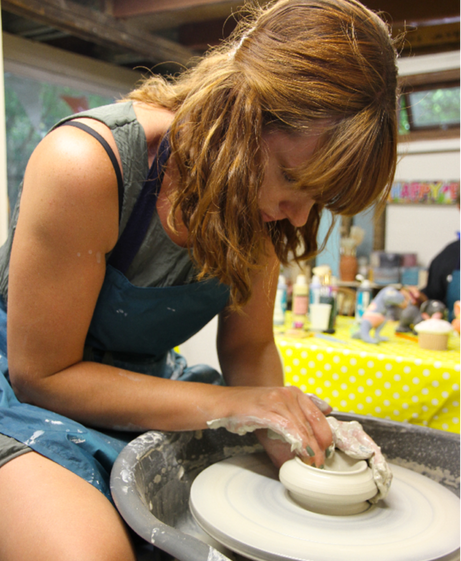Fungi are essential to life on earth, yet many people are unaware of their importance or know little about them. The mission of the British Mycological Society is to promote fungal science and we recognise that art, in all its forms, provides a powerful route through which we can attract new audiences, provoke discussion and stimulate interest in mycology.

The Massee Arts Grant provides funding of £10,000 per annum (up to a maximum of £5000 per project) to support artists from all disciplines whose work helps encourage all sectors of society to engage and learn about the wonderful world of fungi.
Massee Arts Grants are awarded annually.
Massee Arts Grants awarded in 2023
An Artistic Exploration of Mycotoxins
Bio-Artist Anna Dumitriu collaborated with Dr Carol Verheecke-Vaessen and the Applied Mycology Group at Cranfield University to develop and create an innovative new body of sculptural artworks to inspire audiences and increase public awareness of the importance of mycotoxins in our society.
Anna ex
"The artworks will explore the issues around mycotoxins and raise awareness of their significant impact on human and animal health, as well as on the food industry. Mycotoxins are toxic compounds produced by certain types of fungi that can grow on a variety of crops including grains, fruits, and vegetables. Notable mycotoxin-producing fungi include Aspergillus, Alternaria, Claviceps, Fusarium and Penicillium.
"Exposure to mycotoxins can cause a range of health problems including cancer, liver damage and immune system suppression. To protect the consumer, maximum levels of protection are enforced in the UK. Non-compliance, causing economic losses and waste for farmers and food producers, increases food insecurity. The World Health Organization (WHO) considers mycotoxins to be a serious public health threat, particularly in developing countries where food safety regulations may not exist or be enforced. It's important to prevent the growth of these fungi and to test for mycotoxins in food and feed to ensure they are safe for consumption.
"We will also explore the gender equality impacts as often women have higher exposure to mycotoxins in developing countries as they are responsible for certain critical stages of the farming process. The artist will benefit from Cranfield's two ongoing projects on aflatoxin challenges in developing countries: NutriNuts (UKRI funded) and EWA-BELT (HORIZON 2020)."
Watch a video about the artistic processes used in the project >
The Great Pottery Mushroom Make-off
Potter Jenny Ashby involved 1000 people in the making of 1000 ceramic fungi that were exhibited at Westbury Wildlife Park on Saturday 7th October, to host the installation of the ceramic mushrooms and to celebrate UK Fungus Day.
 Jenny explains the project:
Jenny explains the project:
"The project will start in July and end in October. Within this time, 600 ceramic fungi will be made by a range of 600 people from the general public during 3 open days at my pottery studio. The remaining 400 fungi will be made by 400 people from community groups who are classed as vulnerable, disadvantaged or from ethnic minority groups. These sessions will be a mix of outreach workshops and studio based workshops spread over 4 days.
"The makers on these workshops will be given a talk about different types of Fungi by a member of the educational team at The Westbury Wildlife Park. The talk will be followed by a pottery lesson which will teach the makers how to make and decorate a 15cm tall fungus model. The models will be displayed in the grounds of the wildlife park where they will stay for 1 month after UK Fungus Day. Each model will be returned to their makers once this time has passed.
"Alongside working with the community, I also intend to work with a small group of potters to make a collection of fungi to permanently display at the park. These pieces will be of a larger scale - between 50cm and150cm tall - and include an information plaque for each piece.
"This project will not only teach the makers about fungi and pottery but it will bring us together as a community, boost morale, provide a sense of pride and achievement from those who have contributed and will hopefully encourage people to be more involved with nature."


